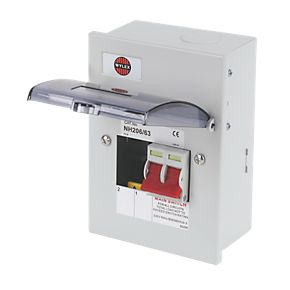Im currently purchasing parts to wire up my shed as a workshop. im in contact with an electrician who has instructed me on a number of parts to buy. however i dont like to keep bothering him with constant questions and would like to have some of the materials ready for him when he comes to wire it up. he has agreed to let me buy the bits and do the donkey work as long as he can see everything and sign off on it.
ill be using this consumer unit in the shed
http://cpc.farnell.com/jsp/search/productdetail.jsp?sku=PL1066407
I want to wire up 4 - 6 double sockets around the work shop, for various tools. and lights of course
I plan to insulate the shed with either ply wood or osb, and a layer of perhaps loft lagging between the shed wall and the inside layer, the shed will be water proof.
would I be able to flush mount the sockets into the wall using dry lining boxes, or should i be using surface mountable back boxes?
Id like to sink them in for a neater look, but i dont know if this is a risk in something like a shed especially if in lagging?
thanks
ill be using this consumer unit in the shed
http://cpc.farnell.com/jsp/search/productdetail.jsp?sku=PL1066407
I want to wire up 4 - 6 double sockets around the work shop, for various tools. and lights of course
I plan to insulate the shed with either ply wood or osb, and a layer of perhaps loft lagging between the shed wall and the inside layer, the shed will be water proof.
would I be able to flush mount the sockets into the wall using dry lining boxes, or should i be using surface mountable back boxes?
Id like to sink them in for a neater look, but i dont know if this is a risk in something like a shed especially if in lagging?
thanks



